Catholics, the "New Right", & Politics in 2023: Dr. Laurie Johnson INTERVIEW | The Simpleton Podcast9/20/2023
Check out this episode of The Simpleton Podcast here!
Dr. Laurie Johnson, Professor of Political Philosophy and co-founder of the Maurin Institute, sits down with Clark for this episode of The Simpleton Podcast. Also in this episode: • Are liberalism and Christianity compatible? • Being Catholic in academia • Should we be trying to reinvent society? • Catholic Integralists & Distributists • Dr. Laurie's Catholic conversion --- To learn more about Dr. Laurie and/or the Maurin Institute, search "Dr. Laurie Johnson" on YouTube or go to https://pmaurin.org/ --- Chapters: 0:00 Start 0:41 Signpost 1:01 Dr. Laurie's Catholic conversion 11:21 Being Catholic at a state university 14:44 Going into academia in 2023 18:34 Dr. Laurie's podcast 19:14 Are liberalism and Christianity compatible? 28:33 The New Right & politics in 2023 40:52 Maurin Academy, the JPII Catholic Worker, & their goals 51:16 What quality of life do we have, and will we have? 1:00:37 Should we be trying to reinvent society? 1:08:01 Catholic Integralists & Distributists 1:19:12 The destructiveness of ideological obsession 1:23:50 The usefulness of outside ideologies --- The Simpleton Podcast is also on Rumble and Odysee. Rumble: rumble.com/user/asimplehouseU Odysee: odysee.com/@asimplehouseU You can also find the audio version of the podcast almost anywhere you stream podcasts (specifically, Spotify, Apple Podcasts, Google Podcasts, RadioPublic, Pocket Casts, Breaker, and Anchor). Just search "The Simpleton Podcast", or go to https://anchor.fm/simpletonpodcast. --- Send us feedback! Email: [email protected] A Simple House is a Catholic ministry that serves project and Section 8 neighborhoods in southeast Washington, DC and Kansas City, MO. Missionaries strive to meet the material and spiritual needs of the poor while living a simple religious life. Each missionary attends daily Mass, says morning and evening prayer from the Catholic Church's Liturgy of the Hours, and makes time for personal prayer and scripture study. Visit https://www.asimplehouse.org/ to learn more about A Simple House and The Simpleton Podcast. YouTube - A Simple House: https://www.youtube.com/@asimplehouse.catholic YouTube - A Simple House U (home of The Simpleton Podcast): https://www.youtube.com/@ASimpleHouseU_2023 Facebook: https://www.facebook.com/@asimplehouse Instagram: https://www.instagram.com/asimplehouse.catholic --- Thank you to Ben Friedman from Totus Media for editing and producing The Simpleton Podcast. Totus Media is a digital media production company based out of Des Moines, Iowa. Totus Media is an Iowa video production company, social media management firm, wedding videography business, and digital marketing agency. Visit https://www.totusmedia.co/ to learn more. --- #catholic #interview #podcast Check out this episode of The Simpleton Podcast here!
Also in this episode: • Is "discovering" your vocation a thing? • The Lego Movie (and its relation) • Willpower can hinder holiness • Non-typical vocations? • Being at home, on Earth --- Chapters: 0:00 Start 0:10 Spirit animals 1:15 Clark's optical illusion 1:46 Introduction to vocation 6:59 The WRONG ideas of vocation 12:53 Being at home, on Earth? 16:52 Another approach to vocation? 19:22 Willpower can HINDER holiness? 26:33 A "trick" to discerning 32:28 Vocation: gift or responsibility? 38:39 The Lego Movie and being creative within constraints 40:27 Theology and vocation 45:21 Youthful idealism? 53:02 The good and bad of romance 56:08 Monogamy and adolescence 59:50 "Finding" your vocation? 1:01:46 What if I don't fit into a typical vocation? 1:07:14 Outro --- The Simpleton Podcast is also on Rumble and Odysee. Rumble: rumble.com/user/asimplehouseU Odysee: odysee.com/@asimplehouseU You can also find the audio version of the podcast almost anywhere you stream podcasts (specifically, Spotify, Apple Podcasts, Google Podcasts, RadioPublic, Pocket Casts, Breaker, and Anchor). Just search "The Simpleton Podcast", or go to https://anchor.fm/simpletonpodcast. --- Send us feedback! Email: [email protected] A Simple House is a Catholic ministry that serves project and Section 8 neighborhoods in southeast Washington, DC and Kansas City, MO. Missionaries strive to meet the material and spiritual needs of the poor while living a simple religious life. Each missionary attends daily Mass, says morning and evening prayer from the Catholic Church's Liturgy of the Hours, and makes time for personal prayer and scripture study. Visit https://www.asimplehouse.org/ to learn more about A Simple House and The Simpleton Podcast. YouTube - A Simple House: https://www.youtube.com/@asimplehouse.catholic YouTube - A Simple House U (home of The Simpleton Podcast): https://www.youtube.com/@ASimpleHouseU_2023 Facebook: https://www.facebook.com/@asimplehouse Instagram: https://www.instagram.com/asimplehouse.catholic --- Thank you to Ben Friedman from Totus Media for editing and producing The Simpleton Podcast. Totus Media is a digital media production company based out of Des Moines, Iowa. Totus Media is an Iowa video production company, social media management firm, wedding videography business, and digital marketing agency. Visit https://www.totusmedia.co/ to learn more. --- #catholic #interview #podcast Check out this episode of The Simpleton Podcast here!
Also in this episode: • Bishops' statements on exhumed nun • The "incarnate" Church • Intense alien speculation • Alien theology • Thoughts on judging others --- Chapters: 0:00 Start 0:49 Bishops' statements on the exhumed Gower Nun 5:32 What kind of allegience do Bishops deserve? 20:39 Space aliens: the religion issue 21:21 Background on space aliens 23:56 How sure are you of space aliens? 27:27 Clark's case for why aliens AREN'T real 38:02 Alien theology & what do we do if aliens ARE real? 46:16 Hell, Hating Hitler, and judging others 50:22 Outro --- The Simpleton Podcast is also on Rumble and Odysee. Rumble: rumble.com/user/asimplehouseU Odysee: odysee.com/@asimplehouseU You can also find the audio version of the podcast almost anywhere you stream podcasts (specifically, Spotify, Apple Podcasts, Google Podcasts, RadioPublic, Pocket Casts, Breaker, and Anchor). Just search "The Simpleton Podcast", or go to https://anchor.fm/simpletonpodcast. --- Send us feedback! Email: [email protected] A Simple House is a Catholic ministry that serves project and Section 8 neighborhoods in southeast Washington, DC and Kansas City, MO. Missionaries strive to meet the material and spiritual needs of the poor while living a simple religious life. Each missionary attends daily Mass, says morning and evening prayer from the Catholic Church's Liturgy of the Hours, and makes time for personal prayer and scripture study. Visit https://www.asimplehouse.org/ to learn more about A Simple House and The Simpleton Podcast. YouTube - A Simple House: https://www.youtube.com/@asimplehouse.catholic YouTube - A Simple House U (home of The Simpleton Podcast): https://www.youtube.com/@ASimpleHouseU_2023 Facebook: https://www.facebook.com/@asimplehouse Instagram: https://www.instagram.com/asimplehouse.catholic --- Thank you to Ben Friedman from Totus Media for editing and producing The Simpleton Podcast. Totus Media is a digital media production company based out of Des Moines, Iowa. Totus Media is an Iowa video production company, social media management firm, wedding videography business, and digital marketing agency. Visit https://www.totusmedia.co/ to learn more. --- #catholic #interview #podcast Sr. Ann Kateri, CFR, Franciscan Sisters of the Renewal (NJ) INTERVIEW | The Simpleton Podcast9/20/2023
Check out this episode of The Simpleton Podcast here!
Clark and Laura sit down with Sr. Ann Kateri, C.F.R. with the Franciscan Sisters of the Renewal in Atlantic City, NJ in this episode of The Simpleton Podcast! Also in this episode: • Why the Franciscans? • ASH's connection to Sr. Ann • Sr. Ann's experience with the homeless • The "Motherhood" of being the Servant of the house • What the CFRs are looking for in postulants --- Links: To learn more about Sr. Ann Kateri, the CFR sisters in Atlantic City, NJ, or the Franciscan Sisters of the Renewal in general, visit https://www.franciscansisterscfr.com/ --- Chapters: 0:00 Start 0:10 Introduction to Sister Ann Kateri 0:46 Clark and Laura's connection to Sister: Exodus Youth Ministries 7:35 Sister's work with the homeless in NJ 17:56 The Franciscans (and their way of life) 35:42 Sister's attraction to the poverty of the Franciscans 48:35 The "Motherhood" that Sister gets to experience 1:00:23 What the CFRs are looking for in postulants 1:06:32 The blend of psychology and spirituality 1:08:24 Why are there so many Franciscan orders? 1:15:14 How much news do the sisters get? What is recreation like? 1:18:50 Children's books, miracles, and more 1:22:30 franciscansisterscfr.com (outro!) --- The Simpleton Podcast is also on Rumble and Odysee. Rumble: rumble.com/user/asimplehouseU Odysee: odysee.com/@asimplehouseU You can also find the audio version of the podcast almost anywhere you stream podcasts (specifically, Spotify, Apple Podcasts, Google Podcasts, RadioPublic, Pocket Casts, Breaker, and Anchor). Just search "The Simpleton Podcast", or go to https://anchor.fm/simpletonpodcast. --- Send us feedback! Email: [email protected] A Simple House is a Catholic ministry that serves project and Section 8 neighborhoods in southeast Washington, DC and Kansas City, MO. Missionaries strive to meet the material and spiritual needs of the poor while living a simple religious life. Each missionary attends daily Mass, says morning and evening prayer from the Catholic Church's Liturgy of the Hours, and makes time for personal prayer and scripture study. Visit https://www.asimplehouse.org/ to learn more about A Simple House and The Simpleton Podcast. YouTube - A Simple House: www.youtube.com/@asimplehouse.catholic YouTube - A Simple House U (home of The Simpleton Podcast): www.youtube.com/@ASimpleHouseU_2023 Facebook: www.facebook.com/@asimplehouse Instagram: https://www.instagram.com/asimplehouse.catholic --- Thank you to Ben Friedman from Totus Media for editing and producing The Simpleton Podcast. Totus Media is a digital media production company based out of Des Moines, Iowa. Totus Media is an Iowa video production company, social media management firm, wedding videography business, and digital marketing agency. Visit https://www.totusmedia.co/ to learn more. --- #catholic #interview #podcast Click here to watch this episode of The Simpleton Podcast!
Salvatore Snaiderbaur, founder of One City Mission in New York City, sits down with Clark in this episode of The Simpleton Podcast! Also in this episode: • "Communion and Liberation", Fr. Luigi Giussani • From Italy, to Kansas, to NYC • Starting a mission • Salvatore's connection to ASH • Italian-American food: good or bad? --- Links: To learn more about One City Mission or how you can support the mission, visit https://www.onecitymission.org/ --- Chapters: 0:00 Start 0:12 An introduction to Salvatore Snaiderbaur, Founder of One City Mission (NYC) 2:00 Growing up in Sicily, Italian cultural revolutions 8:48 Getting involved in Communion and Liberation 11:43 Understanding Giussani's theological foundations 23:38 Why Salvatore moved from Italy to Kansas to Brooklyn 28:31 Salvatore's standing in Communion and Liberation 32:01 What IS Communion and Liberation? 34:36 How Salvatore started his own mission (and the ASH connection) 39:51 Is it hard to engage the world after being in a protected, Catholic environment? 45:59 What is One City Mission (Salvatore's Mission)? 55:34 How to support One City Mission 56:45 Bonus: Salvatore's take on Italian-American food --- The Simpleton Podcast is also on Rumble and Odysee. Rumble: rumble.com/user/asimplehouseU Odysee: odysee.com/@asimplehouseU You can also find the audio version of the podcast almost anywhere you stream podcasts (specifically, Spotify, Apple Podcasts, Google Podcasts, RadioPublic, Pocket Casts, Breaker, and Anchor). Just search "The Simpleton Podcast", or go to https://anchor.fm/simpletonpodcast. --- Send us feedback! Email: [email protected] A Simple House is a Catholic ministry that serves project and Section 8 neighborhoods in southeast Washington, DC and Kansas City, MO. Missionaries strive to meet the material and spiritual needs of the poor while living a simple religious life. Each missionary attends daily Mass, says morning and evening prayer from the Catholic Church's Liturgy of the Hours, and makes time for personal prayer and scripture study. Visit https://www.asimplehouse.org/ to learn more about A Simple House and The Simpleton Podcast. YouTube - A Simple House: https://www.youtube.com/@asimplehouse.catholic YouTube - A Simple House U (home of The Simpleton Podcast): https://youtube.com/@asimplehouseu_2023 Facebook: @asimplehouse Instagram: @asimplehouse.catholic --- Thank you to Ben Friedman from Totus Media for editing and producing The Simpleton Podcast. Totus Media is a digital media production company based out of Des Moines, Iowa. Totus Media is an Iowa video production company, social media management firm, wedding videography business, and digital marketing agency. Visit https://www.totusmedia.co/ to learn more. --- #catholic #interview #podcast Click here to watch this episode of The Simpleton Podcast!
Also in this episode: • Listener comments • "Bad faith" and its cure • Incorruptibles • Benedictine Nuns of Gower, MO • Is voting good? --- Chapters: 0:00 Start 0:51 Thomas Aquinas bot! (Listener comment pt. 1) 2:04 Is voting actually good? (Listener comment pt. 2) 3:58 Our response 13:52 What is "bad faith"? And how to rid ourselves of it 26:16 Recent "Incorrupt" Benedictine nun? 32:19 Background on the Benedictine nuns of Gower, Missouri... 38:18 ...and its relevance 45:20 The two problems of the story 48:05 Final thoughts on the story 50:59 Send us your thoughts! --- Links: Thomas Aquinas Bot: https://courses.sdcason.com/lesson/aquinas-bot/ --- The Simpleton Podcast is also on Rumble and Odysee. Rumble: rumble.com/user/asimplehouseU Odysee: odysee.com/@asimplehouseU You can also find the audio version of the podcast almost anywhere you stream podcasts (specifically, Spotify, Apple Podcasts, Google Podcasts, RadioPublic, Pocket Casts, Breaker, and Anchor). Just search "The Simpleton Podcast", or go to https://anchor.fm/simpletonpodcast. --- Send us feedback! Email: [email protected] A Simple House is a Catholic ministry that serves project and Section 8 neighborhoods in southeast Washington, DC and Kansas City, MO. Missionaries strive to meet the material and spiritual needs of the poor while living a simple religious life. Each missionary attends daily Mass, says morning and evening prayer from the Catholic Church's Liturgy of the Hours, and makes time for personal prayer and scripture study. Visit asimplehouse.org to learn more about A Simple House and The Simpleton Podcast. YouTube - A Simple House: https://www.youtube.com/@asimplehouse.catholic YouTube - A Simple House U (home of The Simpleton Podcast): https://youtube.com/@asimplehouseu_2023 Facebook: @asimplehouse Instagram: @asimplehouse.catholic --- Thank you to Ben Friedman from Totus Media for editing and producing The Simpleton Podcast. Totus Media is a digital media production company based out of Des Moines, Iowa. Totus Media is an Iowa video production company, social media management firm, wedding videography business, and digital marketing agency. Visit https://www.totusmedia.co/ to learn more. --- #catholic #exhumed #podcast Pursuing the "Real": INTERVIEW w/ Spencer Hess & Emily Larner, JPII Catholic Worker Farm (KCMO)6/7/2023
Click here to watch this episode of The Simpleton Podcast!
Also in this episode: • Utopia? Or anti? • The Catholic Worker Movement • How to "build the kingdom" • Spencer's podcast (with Dr. Laurie Johnson): Dustbowl Diatribes • Catholic conversion --- 0:00 Start 0:36 Origins of JPII Catholic Worker Farm, Spencer, and Emily 10:01 Hippies, Christians, farmers, and Michael Pollen 15:52 Spencer's journey to Catholicism 18:00 The biggest challenge for organic farming 27:30 Spencer's failed farm ideas 28:27 Where the interest in Catholic Worker Farms came from 40:54 Why Catholicism? And how Spencer & Emily met 43:41 Emily's background 44:53 Spencer and Emily 45:59 An aside on Mormonism 46:56 The jump to Catholicism and the Catholic Worker Movement 53:48 Goals of the JPII Catholic Worker Farm 58:26 Spencer's podcast (with Dr. Laurie Johnson): Dustbowl Diatribes 1:06:44 Anti-utopian dreams (and anti-uniformity) 1:12:53 Understanding "building the Kingdom of God" 1:15:15 Is the vague-ness of Catholic Social Teaching good? 1:30:48 The "dustbowl" of modernity 1:33:19 Global warming, doomerism, growing your own food, and cities 1:48:01 Summarizing our thoughts: pursuing the "real" 1:49:16 Outro --- Links: JPII Catholic Worker Farm: https://jpiicatholicworkerfarm.com/ Dustbowl Diatribes with Dr. Laurie Johnson & Spencer Hess: https://www.youtube.com/playlist?list=PLsLkfggTCOx_cZ2WLSL-mRfrizC89Ln4k --- The Simpleton Podcast is also on Rumble and Odysee. Rumble: rumble.com/user/asimplehouseU Odysee: odysee.com/@asimplehouseU You can also find the audio version of the podcast almost anywhere you stream podcasts (specifically, Spotify, Apple Podcasts, Google Podcasts, RadioPublic, Pocket Casts, Breaker, and Anchor). Just search "The Simpleton Podcast", or go to https://anchor.fm/simpletonpodcast. --- Send us feedback! Email: [email protected] A Simple House is a Catholic ministry that serves project and Section 8 neighborhoods in southeast Washington, DC and Kansas City, MO. Missionaries strive to meet the material and spiritual needs of the poor while living a simple religious life. Each missionary attends daily Mass, says morning and evening prayer from the Catholic Church's Liturgy of the Hours, and makes time for personal prayer and scripture study. Visit asimplehouse.org to learn more about A Simple House and The Simpleton Podcast. YouTube - A Simple House: https://www.youtube.com/@asimplehouse.catholic YouTube - A Simple House U (home of The Simpleton Podcast): https://youtube.com/@asimplehouseu_2023 Facebook: @asimplehouse Instagram: @asimplehouse.catholic --- Thank you to Ben Friedman from Totus Media for editing and producing The Simpleton Podcast. Totus Media is a digital media production company based out of Des Moines, Iowa. Totus Media is an Iowa video production company, social media management firm, wedding videography business, and digital marketing agency. Visit www.totusmedia.co to learn more. --- #catholic #tedlasso #podcast Reform & Realism, Ted Lasso, Ron DeSantis, Theodrama, Catholic Church | The Simpleton Podcast6/6/2023
Click here to watch this episode of The Simpleton Podcast!
Also in this episode: • Friends, Seinfeld, and what's real • Catholic university problems • Gen Z trusts the government? • Via Negativa and Via Positiva • "Dustbowl Diatribes" --- Chapters: 0:00 Start 1:12 Laura's Mother's Day surprise 3:26 Reforming institutions: the problem, why people wanted to 10:28 The issue of Catholic universities 16:46 How to reform an institution 20:20 Ron DeSantis's reform of schools in Florida 28:45 Failure of public schools 33:21 Feedback from a listener: Gen Z's trust in government 43:16 Blocking industry progress, hurting the masses 46:25 Emminent domain 49:46 Ted Lasso is Jesus Christ? "Theodrama" explained 57:44 "Friends", "Seinfeld", and reality vs. fiction 1:00:02 Via negativa/via positiva in pursuing holiness 1:05:19 "Dustbowl Diatribes": Laura's recommendation (link in description) 1:07:58 Outro --- Links: Dustbowl Diatribes with Dr. Laurie Johnson & Spencer Hess: https://www.youtube.com/playlist?list=PLsLkfggTCOx_cZ2WLSL-mRfrizC89Ln4k --- The Simpleton Podcast is also on Rumble and Odysee. Rumble: rumble.com/user/asimplehouseU Odysee: odysee.com/@asimplehouseU You can also find the audio version of the podcast almost anywhere you stream podcasts (specifically, Spotify, Apple Podcasts, Google Podcasts, RadioPublic, Pocket Casts, Breaker, and Anchor). Just search "The Simpleton Podcast", or go to https://anchor.fm/simpletonpodcast. --- Send us feedback! Email: [email protected] A Simple House is a Catholic ministry that serves project and Section 8 neighborhoods in southeast Washington, DC and Kansas City, MO. Missionaries strive to meet the material and spiritual needs of the poor while living a simple religious life. Each missionary attends daily Mass, says morning and evening prayer from the Catholic Church's Liturgy of the Hours, and makes time for personal prayer and scripture study. Visit asimplehouse.org to learn more about A Simple House and The Simpleton Podcast. YouTube - A Simple House: https://www.youtube.com/@asimplehouse.catholic YouTube - A Simple House U (home of The Simpleton Podcast): https://youtube.com/@asimplehouseu_2023 Facebook: @asimplehouse Instagram: @asimplehouse.catholic --- Thank you to Ben Friedman from Totus Media for editing and producing The Simpleton Podcast. Totus Media is a digital media production company based out of Des Moines, Iowa. Totus Media Des Moines is an Iowa wedding videography company, video production company, social media management firm, and digital marketing agency. Visit www.totusmedia.co to learn more. --- #catholic #tedlasso #podcast Trust the Government?, Baltimore Abuse Report, Public School Crisis | The Simpleton Podcast6/5/2023
Click here to watch this episode of The Simpleton Podcast!
This one's jam-packed! Also in this episode: • Critique from a listener • Purpose of The Simpleton Podcast • Baltimore Abuse Report • Don't control the world • Public school crisis --- Links: DEI spending at Michigan: https://news.yahoo.com/university-michigan-spends-more-18-174253474.html Community colleges are a waste of time?: https://www.columbian.com/news/2023/may/02/waste-of-time-community-college-transfers-derail-students/ --- Chapters: 0:00 Start 0:26 Signpost: a MASSIVE episode ahead! 2:25 ASH's 20th Anniversary Party in KC recap! 3:10 What's the purpose of The Simpleton Podcast? 10:28 How liberals and conservatives approach big problems 11:42 Why Catholics (or anyone) shouldn't try to control the world 14:35 Update on the Baltimore Abuse Report (Statute of Limitations) 15:31 Critique from a listener about TSP's take on public schools and abuse 25:08 The public schools crisis 27:10 The cost of diversity and inclusion: U of Michigan case study 29:08 Community colleges are a waste of time? 30:03 The importance of state government... 30:31 ...gender ideology, Montana and their gender-affirming care bill... 34:06 ...and the case of Zooey Zephyr 39:08 Laura's experience working in the state legislature 40:36 Catholic immigration stance? And accusations of the US's trafficking 48:31 Clark's crazy story about being encouraged to traffic immigrants 50:27 The 0% Conspiracy Analysis of Jeffrey Epstein 53:49 The secrecy and dangers of the US Intelligence Community and CIA 57:08 How to fix said secrecy problem & should we trust the government? 58:57 Kids being skeptical of government; the right to privacy 1:02:34 Concerning lack of regulation, especially with AI, social media 1:07:38 Summarizing our thoughts on oversight, failures, and cultural confusion 1:09:26 Outro --- The Simpleton Podcast is also on Rumble and Odysee. Rumble: rumble.com/user/asimplehouseU Odysee: odysee.com/@asimplehouseU You can also find the audio version of the podcast almost anywhere you stream podcasts (specifically, Spotify, Apple Podcasts, Google Podcasts, RadioPublic, Pocket Casts, Breaker, and Anchor). Just search "The Simpleton Podcast", or go to https://anchor.fm/simpletonpodcast. --- Send us feedback! Email: [email protected] A Simple House is a Catholic ministry that serves project and Section 8 neighborhoods in southeast Washington, DC and Kansas City, MO. Missionaries strive to meet the material and spiritual needs of the poor while living a simple religious life. Each missionary attends daily Mass, says morning and evening prayer from the Catholic Church's Liturgy of the Hours, and makes time for personal prayer and scripture study. To learn more about A Simple House and The Simpleton Podcast, visit asimplehouse.org. YouTube - A Simple House: https://www.youtube.com/@asimplehouse.catholic YouTube - A Simple House U (home of The Simpleton Podcast): https://youtube.com/@asimplehouseu_2023 Facebook: @asimplehouse Instagram: @asimplehouse.catholic --- Thank you to Ben Friedman from Totus Media for editing and producing The Simpleton Podcast. Totus Media is a digital media production company based out of Des Moines, Iowa. Totus Media is an Iowa video production company, social media management firm, wedding videography business, and digital marketing agency. Visit www.totusmedia.co to learn more. --- #catholic #politics #podcast From Presbyterian Pastor to Catholic Convert: INTERVIEW w/ Chad Pirotte | The Simpleton Podcast6/2/2023
Click here to watch this episode of The Simpleton Podcast!
Chad Pirotte is a theologian, full-time carpenter, public speaker, writer, and avid pipe smoker. Chad was a Presbyterian pastor for 10 years before becoming Catholic. Clark sits down with Chad for a discussion on conversion, theology, and why Catholicism drew him in. Also in this episode: • Pipe smoking • The significance of suffering • "Hot rod" Evangelicalism • Reformed theology & Presbyterianism • "Being a Chad" Find more of Chad's work at groundedcatholic.com. --- Chapters: 0:00 Start 0:24 Smoking pipes and crying 1:25 Introducing: Chad Pirotte 3:10 Chad and Clark's pipe smoking evangelization 9:02 Chad's (triple) conversion story 14:07 Reformed theology, Protestantism, and philosophy 19:10 What does a "deeper conversion" mean? 20:52 Life in Protestant seminary & getting involved with a Korean-American church 23:57 A brief tangent on Taiwanese culture and heritage 25:19 How did Chad become Catholic? And the role of suffering 27:42 Do evangelicals neglect the reality of suffering? 29:40 What authors, works, or ideas (infused theology) helped Chad in his conversion? 33:27 How Chad's church's stance on homosexuality affected his pastorship 34:34 What does an ordination mean in the Presbyterian church? 36:34 All the factors that led to Chad's first big step toward Catholicism 39:04 RCIA: how Chad became a present-day Catechist 45:11 Chad's ministry "Grounded Catholic" 50:00 How Chad's wife Carrie led him toward Catholicism 52:38 The "hot rod" origins of Evangelical Protestantism?... 57:33 ...and how it relates to Catholicism's "approach" 58:39 Was Vatican II good for the Church? 1:00:09 The Church fathers and the speed of culture now 1:02:05 "Being a Chad" 1:04:21 The Church's care for the poor 1:05:11 groundedcatholic.com! 1:05:51 Outro --- The Simpleton Podcast is also on Rumble and Odysee! You can watch the latest episodes of The Simpleton Podcast by going to: Rumble: rumble.com/user/asimplehouseU Odysee: odysee.com/@asimplehouseU You can also find the audio version of this episode almost anywhere you stream podcasts (specifically, Spotify, Apple Podcasts, Google Podcasts, RadioPublic, Pocket Casts, Breaker, and Anchor). Just search "The Simpleton Podcast", or go to https://anchor.fm/simpletonpodcast. --- Like, subscribe, share the podcast, and most of all, send us your feedback! We want to hear from you about what you loved, what you didn't, where you want to see the podcast go, and any other thoughts you have. Send us an email at [email protected] with the subject line "The Simpleton Podcast Feedback". A Simple House is a Catholic ministry that serves project and Section 8 neighborhoods in southeast Washington, DC and Kansas City, MO. Our Catholic missionary work involves meeting people in their neighborhoods and in their homes. Missionaries strive to meet the material and spiritual needs of the poor. While missionaries serve at A Simple House, they live a simple religious life. Each missionary attends daily Mass, says morning and evening prayer from the Catholic Church's Liturgy of the Hours, and makes time for personal prayer and scripture study. To learn more about A Simple House and The Simpleton Podcast, visit asimplehouse.org. You can also follow us on these platforms: YouTube - A Simple House: https://www.youtube.com/@asimplehouse.catholic YouTube - A Simple House U (home of The Simpleton Podcast): https://youtube.com/@asimplehouseu_2023 Facebook: @asimplehouse Instagram: @asimplehouse.catholic --- Thank you to Ben Friedman from Totus Media for editing and producing The Simpleton Podcast. Totus Media is a digital media production company based out of Des Moines, Iowa. Totus Media is an Iowa video production company, social media management firm, wedding videography business, and digital marketing agency. Visit www.totusmedia.co to learn more. --- #catholic #convert |
Archives
September 2023
Categories |

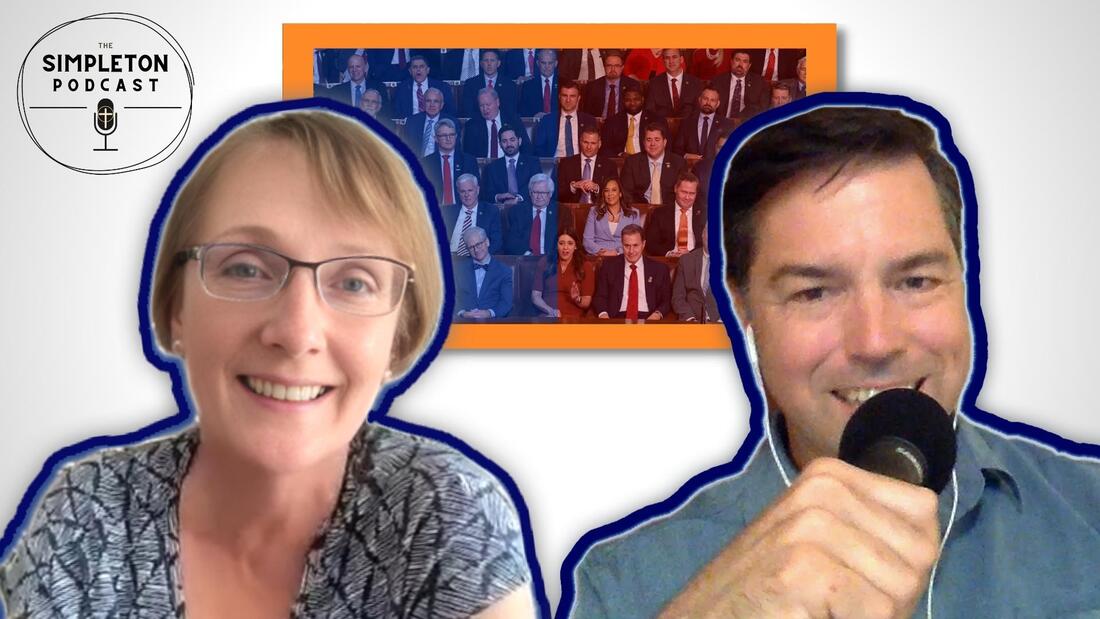


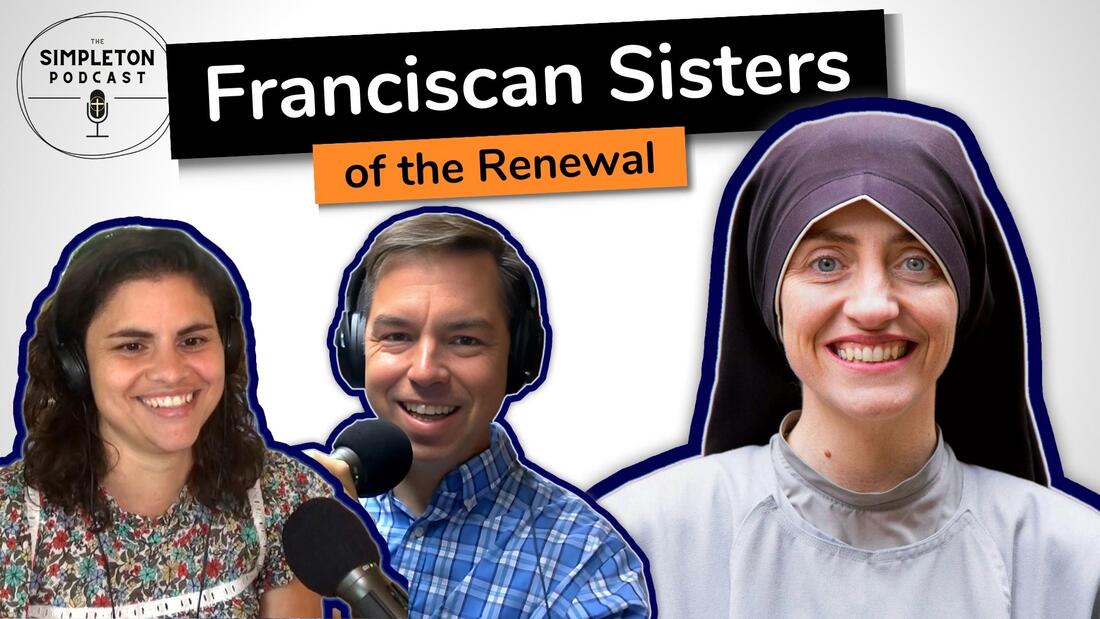
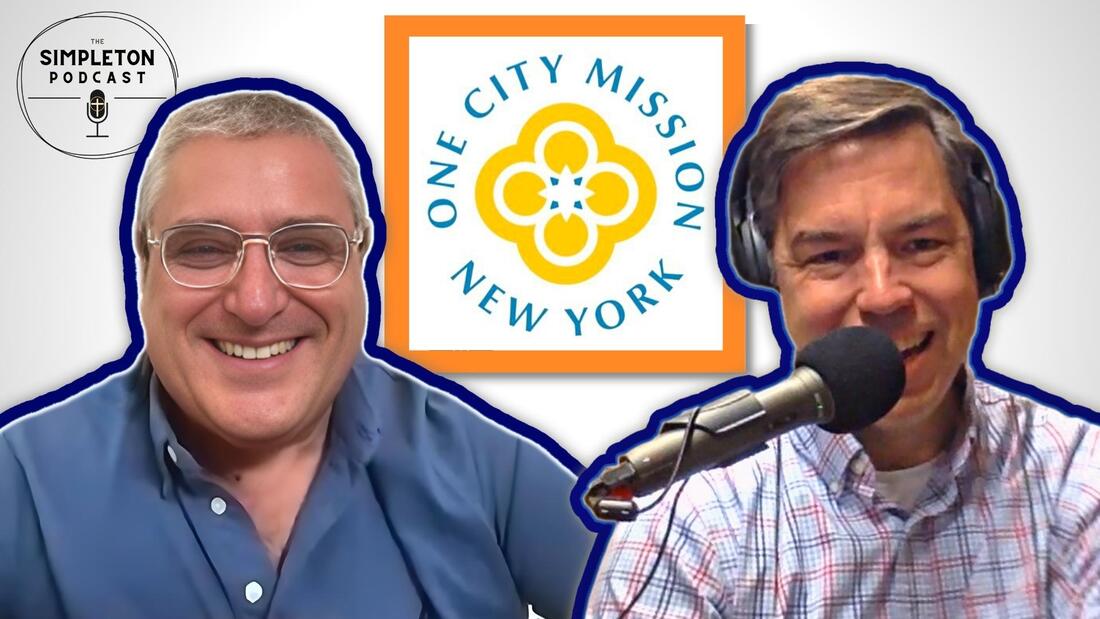
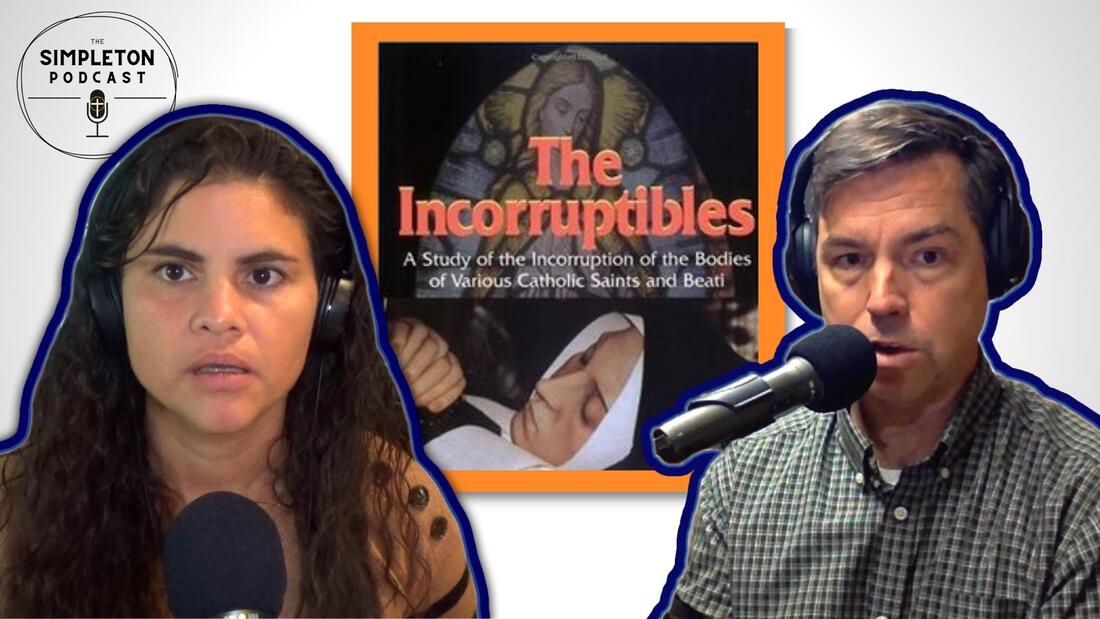
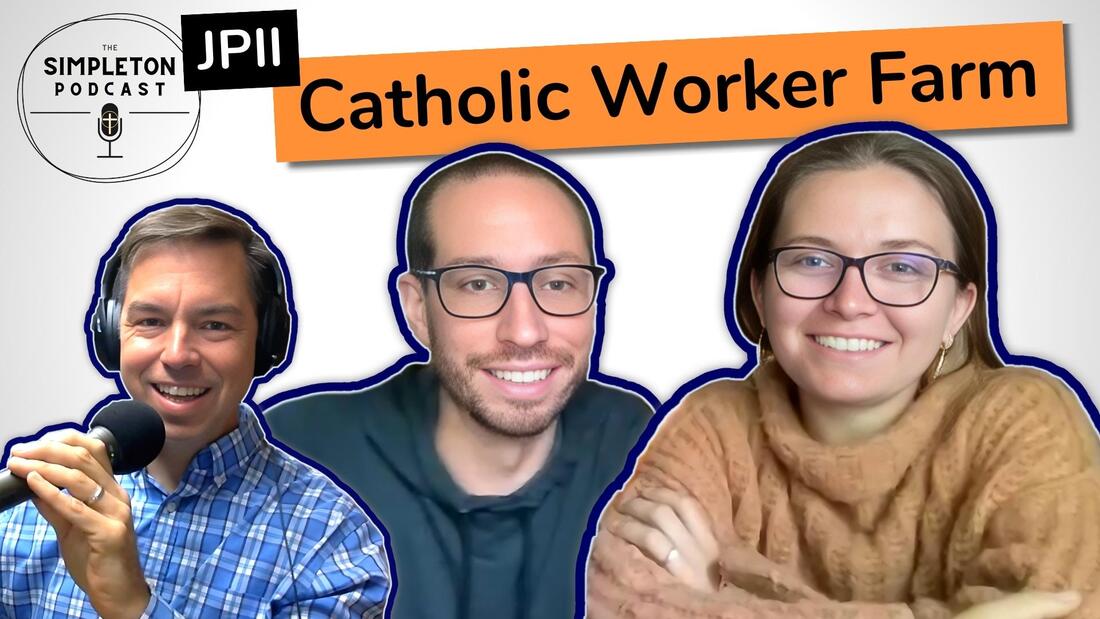
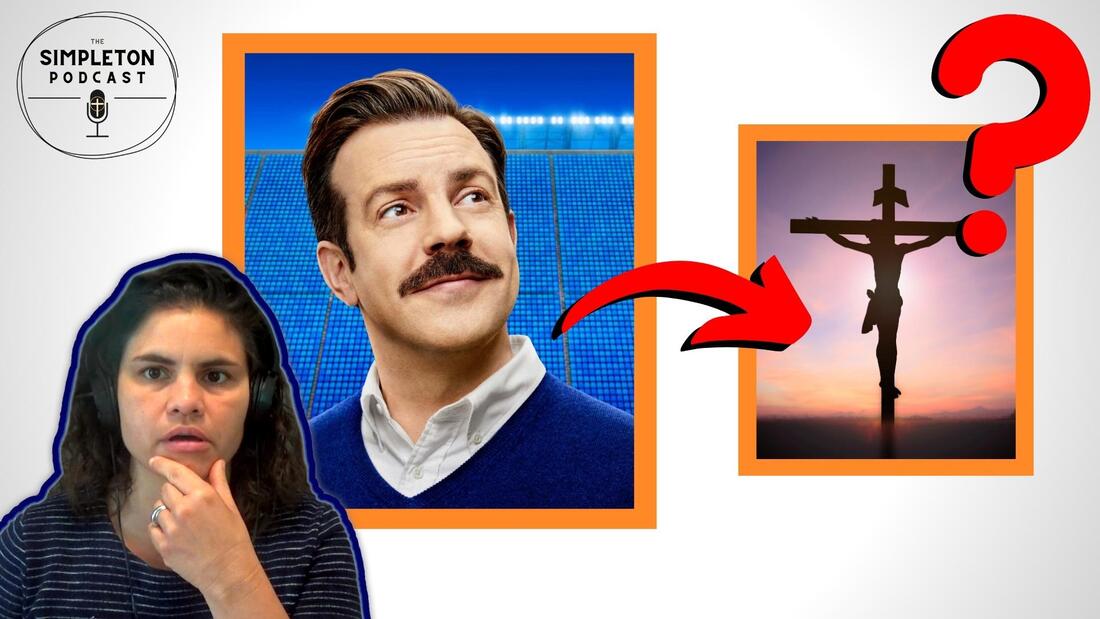

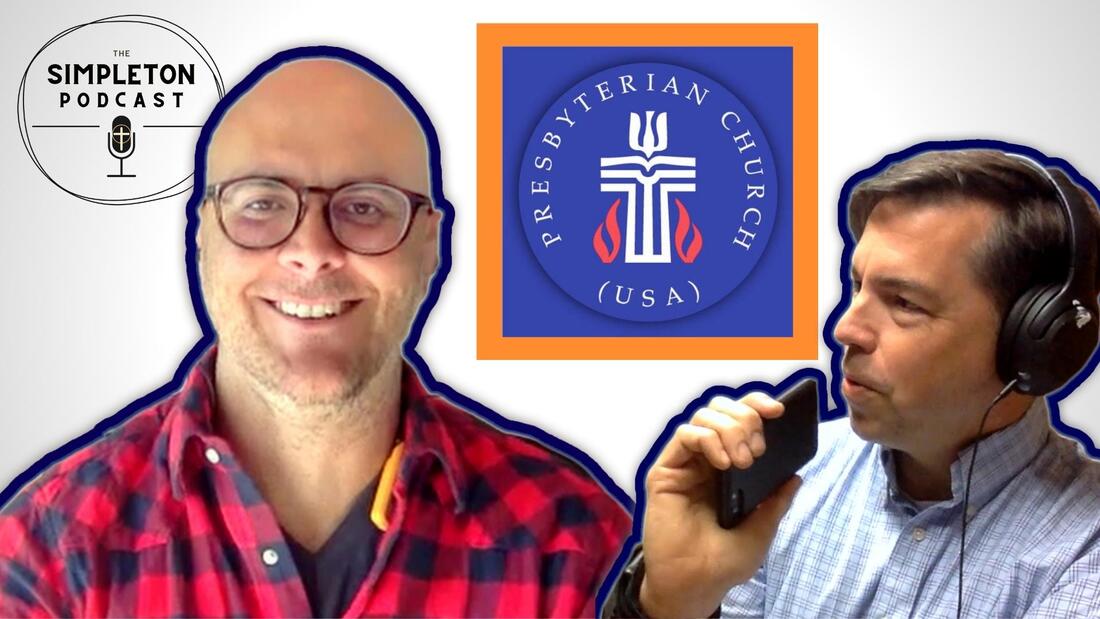
 RSS Feed
RSS Feed
